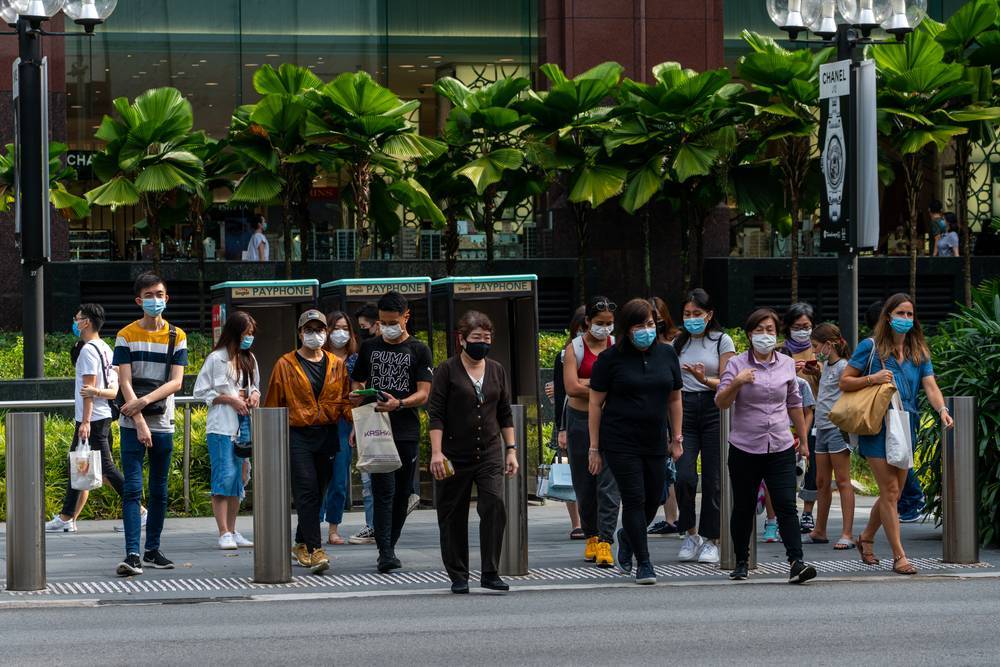Medical Channel Asia presents the weekly Asian medical news bulletin, bringing you essential healthcare news from across the region.
In this week’s bulletin, we cover teenage pregnancy in the Philippines, a missing helicopter carrying hospital staff, e-cigarette regulations in Singapore, healthcare tourism in Thailand, steps to tackle doctor shortages in Malaysia, and Vietnam’s surgical center cutbacks.
Philippines
A helicopter carrying a hospital patient, two companions, a nurse, and a pilot went missing on its way to a hospital in Brooke’s Point in Palawan, Philippines. The helicopter was being operated by a medical aviation services firm. Coast guard vessels and a small plane were deployed to search for it. There have been several aviation incidents involving small aircraft in the country in recent weeks.
In other news, registered live births in the Philippines declined by 10.7% in 2021, according to the Philippine Statistics Authority (PSA). Also, The Philippine government, in partnership with the Korea International Cooperation Agency (KOICA) and the United Nations, has launched a program aimed at reducing the high rates of adolescent pregnancies in the country. Consequently, with a younger population structure, the Philippines is expected to benefit from a demographic dividend, but high rates of teenage pregnancy pose a risk to this potential. This issue was previously covered in a weekly news bulletin.
Singapore
The Health Sciences Authority (HSA) and the National Environment Agency (NEA) in Singapore have teamed up to create a cross-agency pilot program to enforce regulations against the use of e-cigarettes. NEA enforcement officers will be able to act against those caught vaping. The program aims to address concerns about the rise in e-cigarette use in the community.
Malaysia
Malaysia’s Ministry of Health has taken several steps to tackle the shortage of doctors and nurses in public hospitals and clinics. This is according to Health Minister Zaliha Mustafa. Among these steps include expediting the appointment process of all medical graduates, increasing the graduate training slots at the health ministry, and reappointing retired medical officers on a contractual basis. The ministry is also encouraging Malaysian specialists working overseas to return home and serve the country.
Vietnam
Viet Duc Hospital, the largest surgical center in northern Vietnam, has had to cut back on scheduled surgeries starting Wednesday due to severe shortages. The hospital only had one week of some medicines needed for treatment left. It also only had two weeks of chemicals required for organ transplants. Before, the hospital had scheduled surgeries for about 100 patients until the end of March. These plans are now all delayed indefinitely. The director of the hospital has called for an urgent solution from the government. Otherwise, the hospital will only be able to receive emergency cases and may even have to suspend surgeries altogether. Major hospitals across Vietnam have been facing a shortage of medical supplies and chemical sterilants since early 2022, which has worsened their financial problems.
Indonesia
The Indonesian government urges vigilance over bird flu, as the H5N1 virus could become a zoonotic disease. The Ministry of Health has instructed agencies to prevent transmission, while the WHO has not seen human susceptibility or transmission. However, the ministry observed bird-to-mammal transmission in North America and Europe, raising fears of zoonotic infection.
Thailand
Thailand’s RAKxa Wellness and Medical Retreat recently hosted a one-day press briefing and study tour. It was titled ‘Wellness Hub to Promote Healthcare and Strengthen the Thai Economy’. The event emphasized the significance of health tourism and transforming Thailand into a global healthcare hub. The Integrated Industrial Health Promotion Division’s Deputy Director of the Ministry of Public Health presented the strategy to accomplish this objective. Additionally,4 the Tourism Authority of Thailand’s Deputy Governor for Marketing Communications shared insights on promoting health tourism. Participants also had hands-on experience with various treatment programs, including traditional Thai massage, wellness treatments, and spa services.

